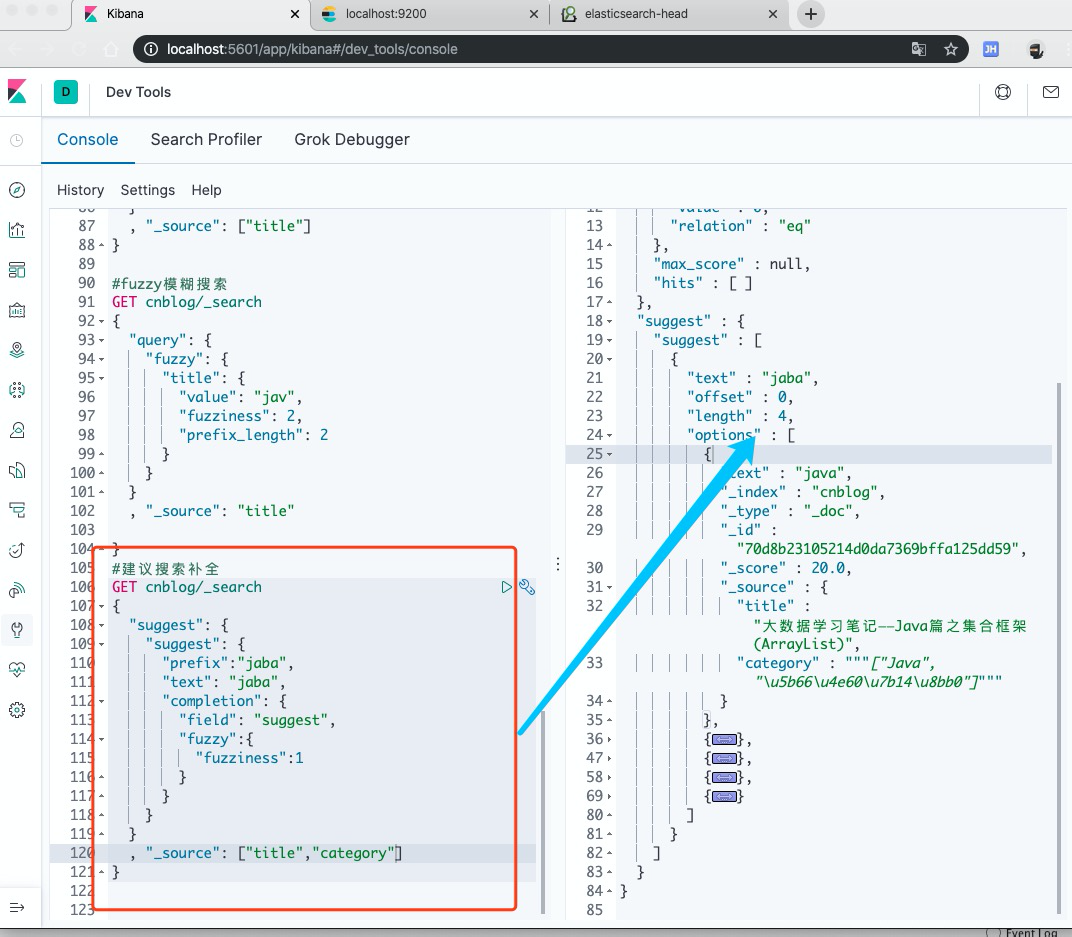

- #Elasticsearch completion suggester analyzer how to#
- #Elasticsearch completion suggester analyzer serial#
Let’s assume that we are indexing postcodes as exact-value not_analyzed fields, so we could create our index as follows: § 3DG: This inner part identifies a street or building: § 1V indicates the district (one or two numbers, possibly followed by a letter § W indicates the area (one or two letters) § W1V: This outer part identifies the postal area and district:

For instance, the postcode W1V 3DG can be broken down as follows: UK postcodes have a well-defined structure.
#Elasticsearch completion suggester analyzer how to#
We will use United Kingdom postcodes (postal codes in the United States) to illustrate how to use partial matching with structured data. We will start by examining prefix matching on exact-value not_analyzed fields. § Matching in languages like German or Dutch, which contain long compound words, like Weltgesundheitsorganisation (World Health Organization) § search-as-you-type-displaying the most likely results before the user has finished typing the search terms
#Elasticsearch completion suggester analyzer serial#
§ Matching postal codes, product serial numbers, or other not_analyzed values that start with a particular prefix or match a wildcard pattern or even a regular expression That said, on some occasions partial matching can be useful. To handle the case of matching both “fox” and “foxes,” we could simply use a stemmer to index words in their root form. Of course, with Elasticsearch, we have the analysis process and the inverted index that remove the need for such brute-force techniques. If you have come from an SQL background, you likely have, at some stage of your career, implemented a poor man’s full-text search using SQL constructs like this: The requirement to match on part of a term is less common in the full-text search-engine world than you might think. You can find only terms that exist in the inverted index.īut what happens if you want to match parts of a term but not the whole thing? Partial matching allows users to specify a portion of the term they are looking for and find any words that contain that fragment. To match something, the smallest unit had to be a single term. Partial MatchingĪ keen observer will notice that all the queries so far in this book have operated on whole terms. Elasticsearch: The Definitive Guide (2015) Part II. apply_suggester_phrase ( suggester_name, queryset, options, value ) # `completion` suggester elif options = SUGGESTER_COMPLETION : queryset = self. apply_suggester_term ( suggester_name, queryset, options, value ) # `phrase` suggester elif options = SUGGESTER_PHRASE : queryset = self. for value in options : # `term` suggester if options = SUGGESTER_TERM : queryset = self. items (): # We don't have multiple values here. get_suggester_query_params ( request, view ) for suggester_name, options in suggester_query_params. action != 'suggest' : return queryset suggester_query_params = self. Usages outside of the # are ``suggest`` action/route are restricted. :rtype: elasticsearch_ """ # The ``SuggesterFilterBackend`` filter backend shall be used in # the ``suggest`` custom view action/route only. :type request: rest_ :type queryset: elasticsearch_ :type view: rest_ :return: Updated queryset. :param request: Django REST framework request. def filter_queryset ( self, request, queryset, view ): """Filter the queryset. Example: > from django_elasticsearch_dsl import DocType, Index, fields > from books.models import Publisher > # Name of the Elasticsearch index > PUBLISHER_INDEX = Index(PUBLISHER_INDEX_NAME) > # See Elasticsearch Indices API reference for available settings > PUBLISHER_ttings( > number_of_shards=1, > number_of_replicas=1 > ) > class PublisherDocument(DocType): > "Publisher Elasticsearch document." > id = fields.IntegerField(attr='id') > name = fields.StringField( > fields= return suggester_query_params It's assumed, that fields you're planning to query suggestions for have been properly indexed using ``fields.CompletionField``.


 0 kommentar(er)
0 kommentar(er)
